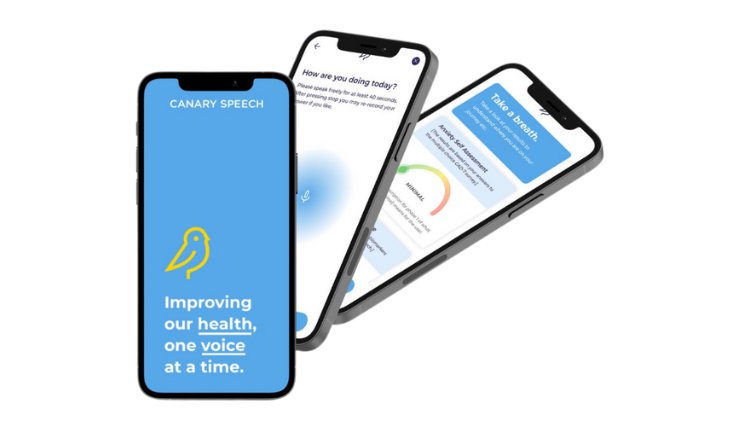

Artificial intelligence (AI) is transforming industries worldwide, and healthcare is no exception. Its potential to revolutionize diagnosis, treatment, patient care, and management is changing the way healthcare providers operate. From enhancing medical imaging to predicting patient outcomes and personalizing treatments, AI is becoming an integral part of healthcare processes.
As AI becomes more embedded in healthcare, its capabilities are being leveraged to streamline procedures like medical billing, coding, and practice management. Medical coding services, in particular, are benefiting from AI’s ability to reduce human errors, speed up the coding process, and ensure compliance with industry standards. But the impact of AI is far broader, affecting everything from diagnostics to treatment plans and beyond.
This article will explore how AI is transforming diagnosis, treatment, and overall healthcare outcomes, with a particular focus on its integration into medical coding services and other essential functions.
AI in Medical Diagnostics
One of the most promising applications of AI in healthcare is in the field of diagnostics. AI algorithms, particularly those based on deep learning and machine learning, are capable of analyzing large volumes of medical data with unprecedented speed and accuracy. This allows AI to assist doctors in making faster and more precise diagnoses.
Medical Imaging
AI-powered tools are particularly useful in medical imaging. For example, AI can analyze images from X-rays, MRIs, and CT scans to identify abnormalities such as tumors, fractures, and infections more quickly and accurately than a human radiologist. AI systems, like those developed by companies such as Zebra Medical Vision and Aidoc, are already being used in hospitals to assist radiologists by flagging potential issues that require further attention.
By enhancing the efficiency of radiologists, AI is not only speeding up diagnosis but also reducing the likelihood of human error, which can be a significant factor in misdiagnoses. Moreover, AI tools can work 24/7, providing constant assistance in critical care situations where timely diagnosis is crucial.
Pathology
AI is also making waves in the field of pathology. Traditionally, pathologists examine tissue samples under a microscope to diagnose diseases such as cancer. However, this process can be time-consuming and prone to human error. AI tools are now being used to assist pathologists by analyzing tissue samples and identifying patterns that may indicate the presence of diseases. This can significantly speed up the diagnostic process and ensure more accurate results.
For example, PathAI is developing AI-powered systems to help pathologists make more precise diagnoses by analyzing digital slides. These tools can detect minute details that may be missed by the human eye, making them invaluable in diagnosing early-stage diseases and improving patient outcomes.
AI in Treatment Planning
Beyond diagnostics, AI is also playing a crucial role in creating personalized treatment plans. Personalized medicine, which tailors treatment to the individual characteristics of each patient, is one of the most promising developments in modern healthcare. AI is making it possible to create more accurate and effective treatment plans by analyzing a patient’s genetic makeup, lifestyle, and medical history.
Oncology
AI is being used extensively in oncology to personalize cancer treatment. By analyzing a patient’s genetic data, AI can help doctors determine which treatments are most likely to be effective. For instance, IBM’s Watson for Oncology uses AI to analyze large datasets of medical literature, clinical trial data, and patient records to suggest personalized treatment options for cancer patients. This can significantly improve the effectiveness of cancer treatment and reduce the trial-and-error approach often used in traditional treatments.
Additionally, AI is being used to predict how patients will respond to certain treatments. Machine learning algorithms can analyze data from previous patients to identify patterns and predict outcomes, enabling doctors to make more informed decisions about treatment options.
Chronic Disease Management
AI is also transforming the management of chronic diseases, such as diabetes, heart disease, and hypertension. By continuously monitoring patients’ health data through wearable devices and mobile apps, AI can detect early warning signs of deterioration and suggest interventions to prevent complications.
For example, AI-powered platforms like Livongo and Omada Health use data from wearable devices to track patients’ health in real-time. These platforms use machine learning algorithms to analyze the data and provide personalized recommendations for managing chronic conditions. This not only improves patient outcomes but also reduces the burden on healthcare providers by allowing them to monitor patients remotely.
AI in Surgery
AI is also making its mark in the field of surgery, where it is being used to assist surgeons in performing complex procedures with greater precision. Robotic surgery systems, such as the da Vinci Surgical System, use AI to enhance the capabilities of human surgeons by providing real-time data and guidance during surgery.
These AI-powered systems can analyze data from the patient’s medical history, imaging scans, and other sources to provide surgeons with valuable insights during the procedure. This can help surgeons make more informed decisions and reduce the risk of complications. Additionally, AI-powered robotic systems can perform certain tasks with greater precision than a human surgeon, such as making precise incisions or suturing tissues.
AI is also being used to develop virtual reality (VR) and augmented reality (AR) systems that can assist surgeons during procedures. These systems can provide surgeons with a 3D view of the patient’s anatomy, allowing them to navigate complex structures with greater accuracy. This can be particularly useful in minimally invasive surgeries, where visibility is limited.
AI and Medical Billing
AI’s impact on healthcare extends beyond diagnosis and treatment. It is also transforming the administrative aspects of healthcare, such as medical billing and coding. Medical billing and coding are essential processes in healthcare, as they ensure that providers are reimbursed for their services and that patients are billed correctly. However, these processes can be time-consuming and prone to errors.
Medical Coding Services
AI-powered medical coding services are revolutionizing the way healthcare providers handle billing and reimbursement. Traditionally, medical coders review patient records and assign the appropriate codes for billing purposes. This can be a tedious and error-prone process, especially when dealing with large volumes of patient records.
AI is streamlining this process by automatically analyzing patient records and assigning the correct medical codes. This not only speeds up the coding process but also reduces the likelihood of errors, which can lead to claim denials and delays in reimbursement. For example, AI-powered medical coding services can accurately interpret complex medical terminology and assign the correct codes, ensuring that healthcare providers are paid for the services they provide.
Additionally, AI can help ensure compliance with industry regulations and coding standards, reducing the risk of audits and penalties. By automating the coding process, healthcare providers can improve their revenue cycle management and focus on providing high-quality care to their patients.
AI in Medical Billing
In addition to coding, AI is also improving the overall medical billing process. AI-powered systems can automatically generate bills, track payments, and identify discrepancies in billing records. This helps healthcare providers ensure that they are paid correctly and on time.
For example, AI can identify patterns in billing data that may indicate fraudulent activity, such as duplicate claims or billing for services that were not provided. This helps healthcare providers avoid costly billing errors and ensures compliance with industry regulations.
AI can also help patients by providing them with a clearer understanding of their medical bills. By analyzing billing data and explaining charges in simple terms, AI-powered systems can help patients understand what they are being billed for and why. This can reduce the confusion and frustration that often accompanies medical billing and improve the overall patient experience.
AI and Predictive Analytics in Healthcare
AI’s ability to analyze vast amounts of data is also being used to predict future healthcare trends and patient outcomes. Predictive analytics, powered by AI, is becoming an invaluable tool for healthcare providers in both clinical and operational settings.
Predicting Patient Outcomes
AI-powered predictive analytics can analyze patient data to predict outcomes such as disease progression, the likelihood of readmission, or the risk of complications. This allows healthcare providers to intervene early and tailor treatment plans to prevent negative outcomes. For example, AI algorithms can analyze a patient’s medical history, lab results, and genetic information to predict the likelihood of developing chronic conditions such as diabetes or heart disease.
This can be particularly useful in intensive care units (ICUs), where AI can predict which patients are at the highest risk of deterioration. Early intervention in such cases can significantly improve patient outcomes and reduce mortality rates.
Resource Management and Optimization
In addition to clinical applications, predictive analytics can also be used to optimize hospital operations. For example, AI can predict patient admission rates, allowing hospitals to manage staff schedules, allocate resources, and prepare for patient influxes more effectively. By predicting when peak times will occur, healthcare providers can reduce waiting times and ensure that enough resources are available to meet patient needs.
AI can also analyze operational data to identify inefficiencies and suggest improvements, such as optimizing staff workflows, reducing patient wait times, or improving supply chain management. This not only improves patient satisfaction but also helps hospitals operate more efficiently and reduce costs.
The Future of AI in Healthcare
As AI in EMR software also continues to advance, its potential to transform healthcare will only grow. In the future, we can expect to see even more sophisticated AI systems capable of diagnosing diseases, predicting patient outcomes, and personalizing treatment plans. AI will also continue to improve the administrative aspects of healthcare, making processes like medical billing and coding more efficient and error-free.
However, the widespread adoption of AI in healthcare also raises important ethical and regulatory questions. For example, how can we ensure that AI systems are making fair and unbiased decisions? How do we protect patient privacy in a world where AI systems have access to vast amounts of personal health data? Addressing these challenges will be crucial as AI becomes more integrated into healthcare.
Conclusion
AI is revolutionizing healthcare by transforming how diagnoses are made, treatments are planned, and administrative tasks like medical coding services and billing are managed. From improving the accuracy of medical imaging to personalizing treatment plans and predicting patient outcomes, AI is enhancing nearly every aspect of healthcare.
In the realm of medical coding and billing, AI is automating processes, reducing errors, and ensuring compliance with industry standards. By improving efficiency in these areas, AI allows healthcare providers to focus more on patient care and less on administrative tasks.
As AI technology continues to evolve, its role in healthcare will only become more significant. The key will be ensuring that AI is used responsibly, ethically, and in a way that benefits both healthcare providers and patients alike. With the right safeguards in place, AI has the potential to transform healthcare for the better, making it more efficient, accurate, and patient-centered.








